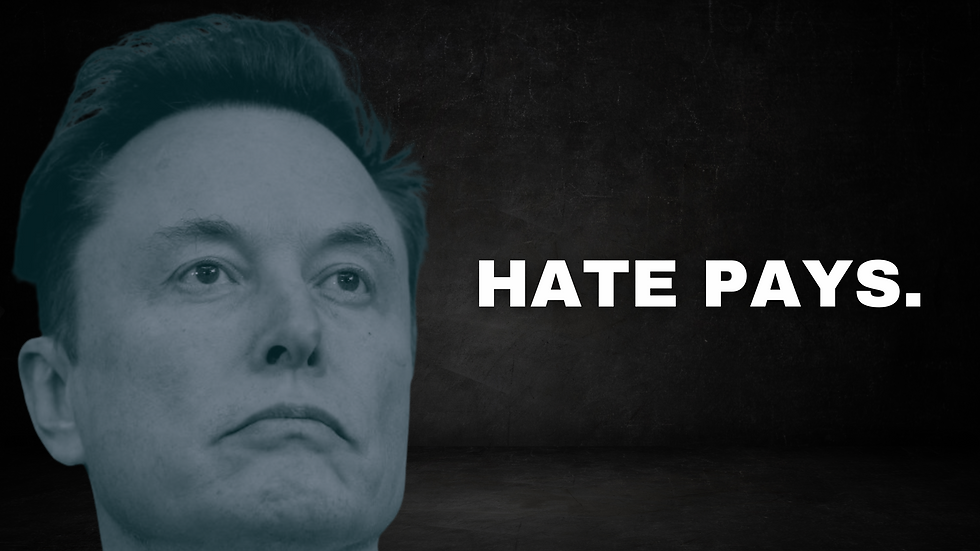Anger Sells, Empathy Fails
- Jamie Strudwick

- 3 days ago
- 2 min read

In a world that is built for clicks, anger and outrage have become the most profitable currency - while kindness struggles to be seen.
It's never been easier to be angry. That's not because life is uniquely unbearable in 2025 through rising costs, inequality, and political dysfunction - although those things don't help. It's because the online spaces we spend so much of our time in are designed to reward outrage. Hate doesn't just spread faster than kindness - it's monetised, packaged, and sold back to us as entertainment.
Platforms like X (formerly Twitter) thrive on engagement. But "engagement" isn't just a buzzword - it's part of the economic machinery: clicks, replies, shares, heated arguments. Outrage generates all of them. In 2024, a report by the Center for Countering Digital Hate (CCDH) published a report found that several accounts on Elon Musk's X were found to be earning revenue for spreading hateful content around the Israel-Gaza conflict. One of the accounts revealed that the owner received $550 in ad revenue over the course of a month from simply posting hateful content. But there are much higher earnings.
In August, I published an article about Rupert Lowe, the Member of Parliament for Great Yarmouth, after I realised that in February 2025, Lowe earned an eye-watering £6,533.47 just from publishing posts on X, which probably makes him Britain's first influencer MP.
But all this goes beyond just individual creators. The system often supports, rewards, or fails to remove hateful content - because there's money in it. After the Southport stabbings in the UK last year, many accounts shared false or misleading claims about Axel Rudakubana's identity. The CCDH found that these accounts amassed 260 million views in the following week. And it paid well. The CCDH examined the accounts of five well-known far-right antagonists, and they found incredibly concerning figures. You can read their article in full by clicking here.
Being decent online requires patience, nuance, and reflection: qualities that do not tend to generate virality or controversy. Posts that are full of anger, blame, or fear often do better because the algorithm picks up on what drives responses and engagement, even if it's negative. And as seen in the examples above, even criticisms of hateful content contribute to its reach, meaning that the more people respond, argue, or protest it, the more visibility the hateful content may get.
Even though hate is rewarded in measurable ways, there are things we can do individually and collectively to shift the incentives. We should all be supporting smaller creators who provide thoughtful, kind, fact-based work, and we must be mindful about how we respond to hateful content. Sometimes silence or de-escalation can avoid feeding that amplification loop. And we must all be pushing for policy change and heavy regulation that demands stronger moderation and accountability.
Yes, it's easier to be hateful in 2025. The system is built so that outrage is profitable - for individuals, platforms, for advertisers. And it is hard to be good, compassionate, and truthful. That's precisely why it matters more than ever. Choosing to be good might not make you millions, but it helps hold open space for sanity, trust, human connection - things which hate seek to erode.













Comments